Notifications
ALL BUSINESS
COMIDA
DIRECTORIES
ENTERTAINMENT
FINER THINGS
HEALTH
MARKETPLACE
MEMBER's ONLY
MONEY MATTER$
MOTIVATIONAL
NEWS & WEATHER
TECHNOLOGIA
TV NETWORKS
VIDEOS
VOTE USA 2026/2028
INVESTOR RELATIONS
COMING 2026 / 2027
ALL BUSINESS
COMIDA
DIRECTORIES
ENTERTAINMENT
FINER THINGS
HEALTH
MARKETPLACE
MEMBER's ONLY
MONEY MATTER$
MOTIVATIONAL
NEWS & WEATHER
TECHNOLOGIA
TV NETWORKS
VIDEOS
VOTE USA 2026/2028
INVESTOR RELATIONS
COMING 2026 / 2027
About Me
 Latinos Media
Latinos Media Latinos Media provides all types of news feeds on a daily basis to our Members
Posted by - Latinos Media -
on - March 30, 2023 -
Filed in - Sports -
-
731 Views - 0 Comments - 0 Likes - 0 Reviews
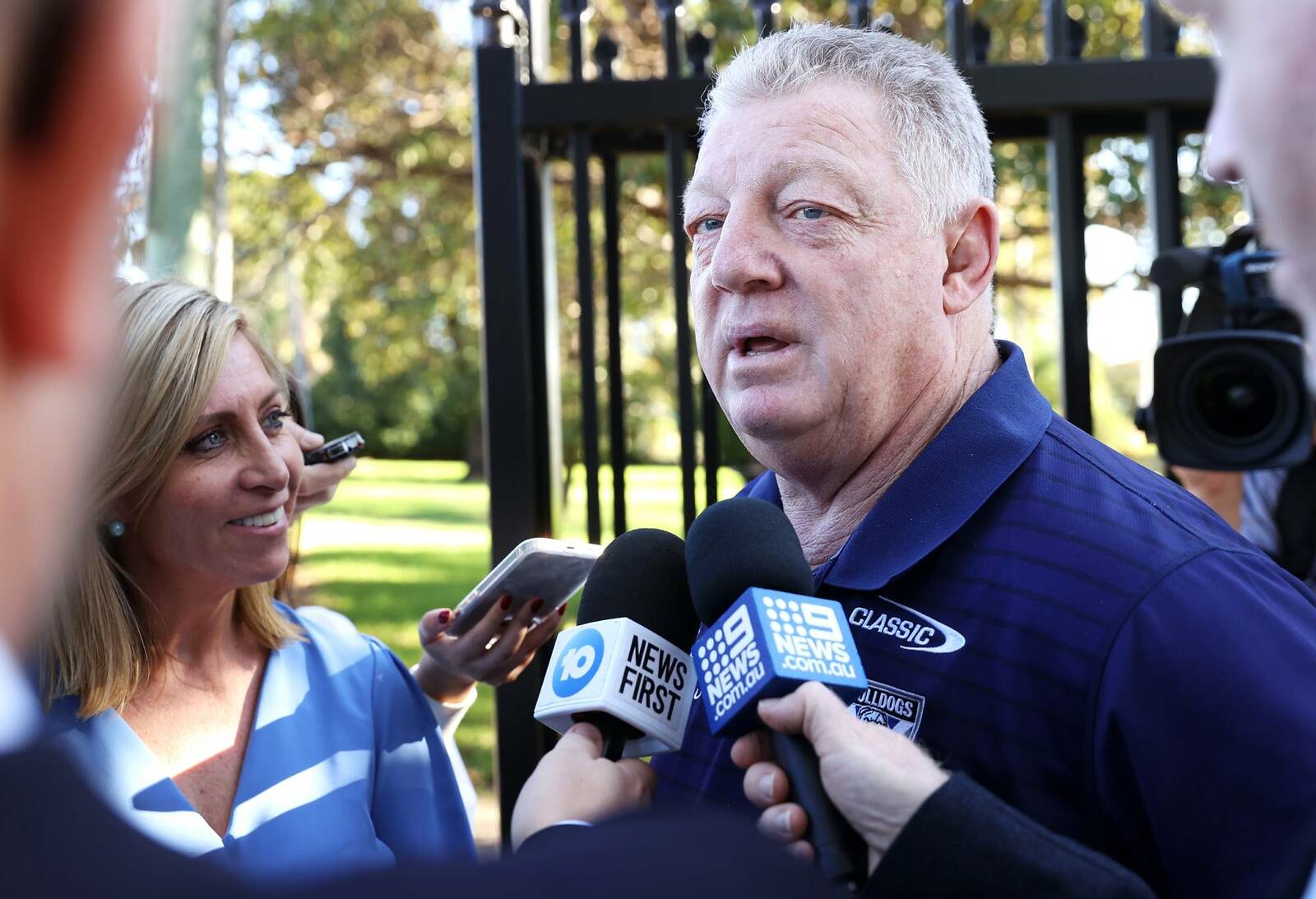
The first thing Rugby Australia should be doing after Phil Gould’s rant about Joseph Suaalii is taking a look at the Canterbury Bulldogs roster.
New coach Eddie Jones and chairman Hamish McLennan can box clever by making an offer for whoever takes their fancy among the Bulldogs squad.
Canterbury’s general manager believes NRL players who sign with rugby down the track should “go now” rather than give publicity to the rival code.
At the end of his Suaalii spray on 100% Footy on Monday night which ignited a back-and-forth slanging match with Roosters coach Trent Robinson over the next few days, Gould was asked if he would let the code-hopping 19-year-old leave early if he was at his club.
CLICK HERE for a seven-day free trial for your favourite sport on KAYO
“I wouldn’t do anything to hold him, no,” he responded without a moment’s hesitation.
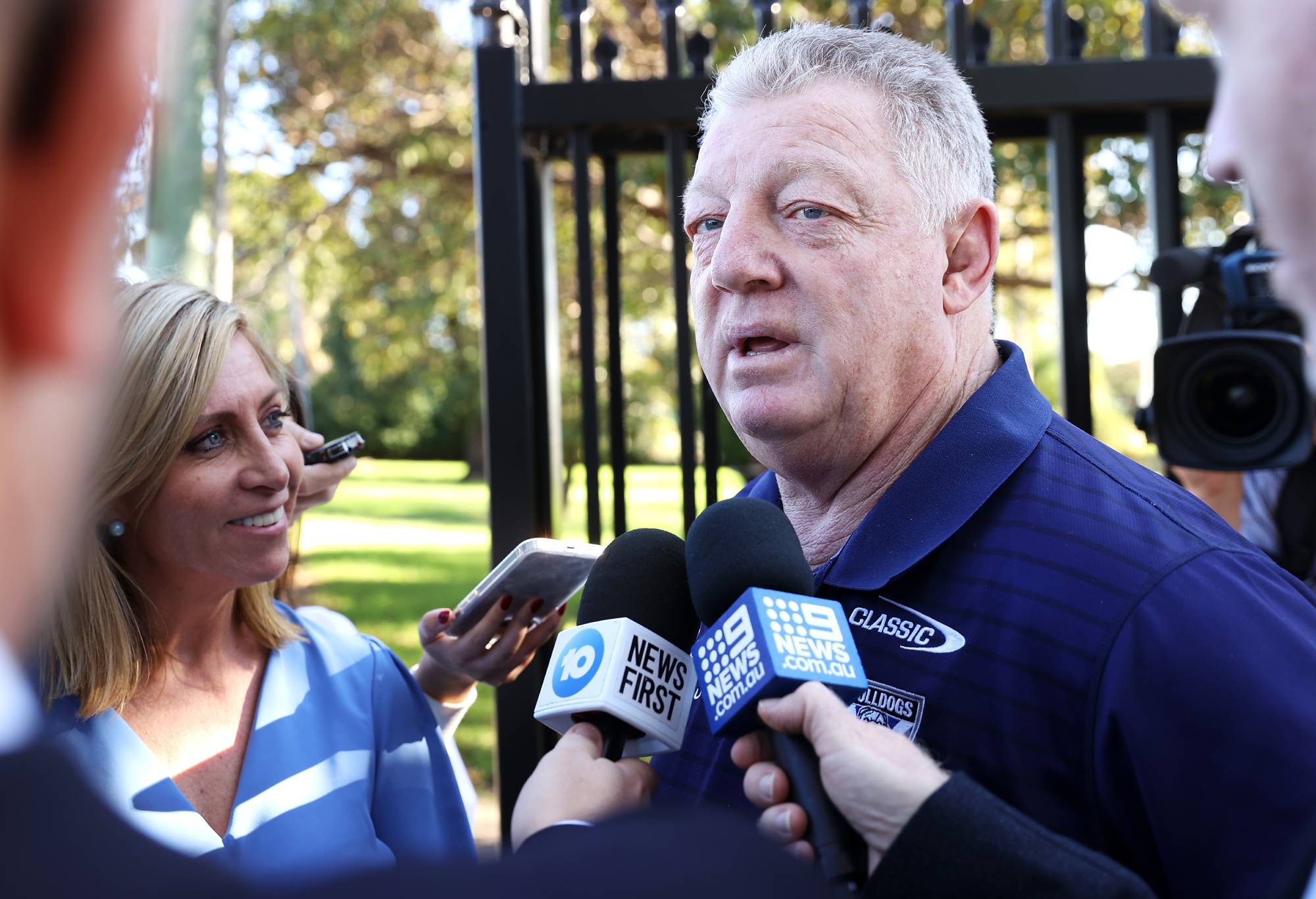
(Photo by Mark Kolbe/Getty Images)
When asked if he would keep picking the player in the side each week, he added: “If I had to, well I don’t pick the teams. But I’m just saying, as a code, I’m happy for him to go now.”
Jones and McLennan have ruffled more than a few feathers in LeagueLand with their comments about eyeing off NRL talent.
The fact that league has been pilfering and pillaging union talent for more than a century at a significantly higher ratio than the other way around doesn’t get a mention when the angry old NRL men yell at the rugby cloud.
And the good news for the supposedly devious Jones and loud-mouthed McLennan is that whether a Bulldog is contracted for this year and extra ones down the track, make them an offer and let the “go now” policy do the rest.
Star five-eighth Matt Burton? He re-signed in January on an upgraded multimillion-dollar deal until the end of 2027, the same year the Wallabies will be hosting the Rugby World Cup, the version with more than five teams who have a realistic hope of winning the trophy.
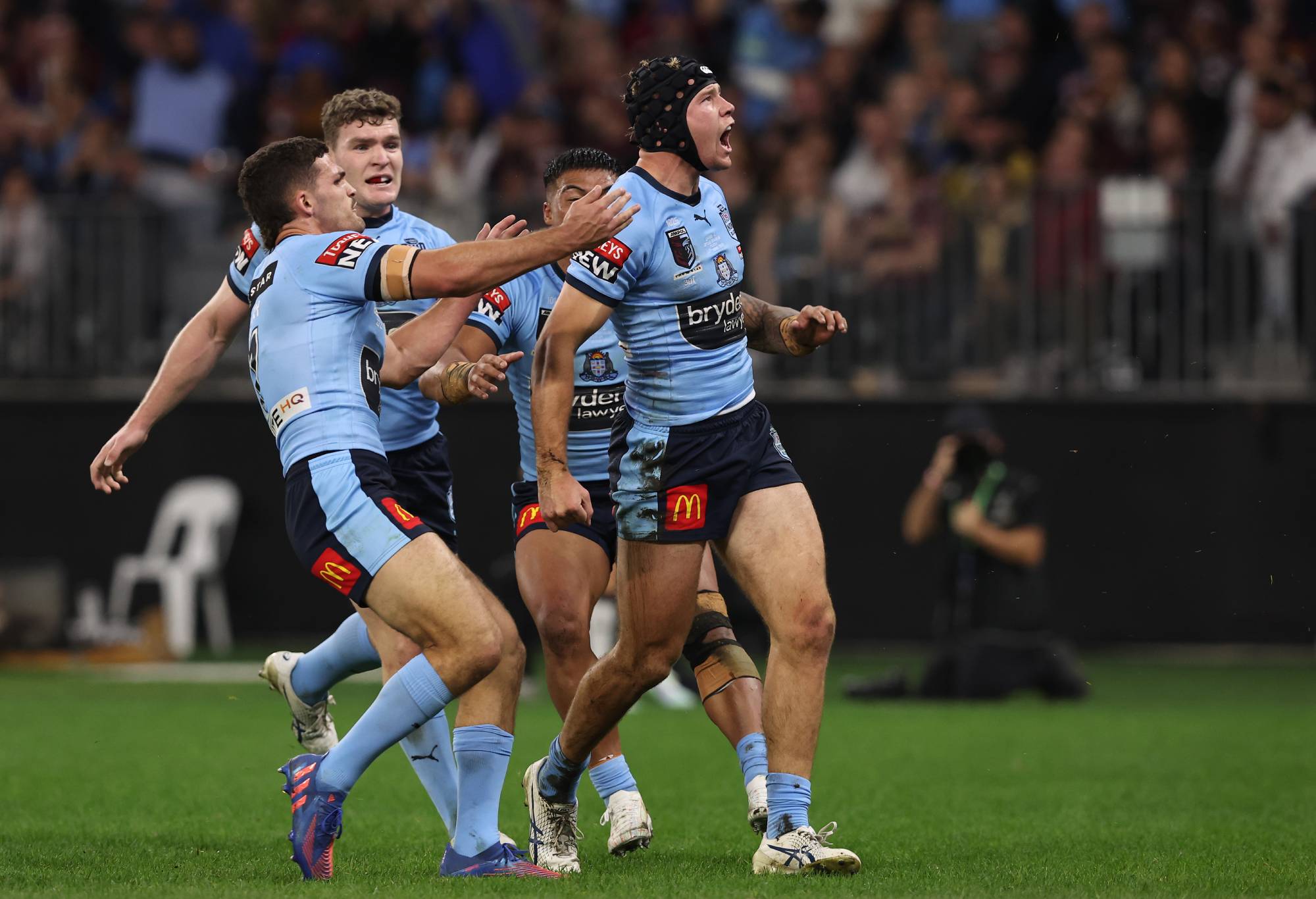
Matt Burton. (Photo by Paul Kane/Getty Images)
Burton’s booming left boot would be extremely valuable in rugby.
McLennan last year admitted the Blues and Kangaroos representative was on a RA shortlist of NRL talent in their sights.
That was before he’d re-signed with the Dogs, but now … worth a shot.
What about The Foxx? Josh Addo-Carr doesn’t have any experience in rugby but his blistering speed is the kind that translates between codes.
His old Storm teammate Suliasi Vunivalu is already on the rugby side of the fence so he could help the 27-year-old make the leap.
Forwards find it harder to make the switch but Raymond Faitala-Mariner grew up playing rugby union wanting to represent the All Blacks while Viliame Kikau is another Bulldog with a rugby background from his junior days in Fiji.
Here’s a galaxy brain option for McLennan and Jones – rising Panthers star Stephen Crichton is contracted to the Bulldogs for four years from next season. If they can sign him, the 22-year-old can “go now” before even going to Canterbury.
Of course, this is all tongue in cheek because if the rugby push came to Bulldogs shove, it’s hard to see the Canterbury board giving their imprimatur to any of these star players being allowed to break their lucrative contracts to go to rugby, another NRL club or the professional pickleball circuit for that matter.
But the current huffing and puffing, not just from Gould, but from a range of rugby league diehards about Suaalii signing a deal to play union has already grown tiresome and he only announced the switch last Saturday.
“Suaalii’s been going to union for three years,” Souths coach Jason Demetriou said on Thursday. “Anybody who’s had a conversation with him knows that’s been part of his plan. I don’t know why anyone’s shocked.”
People who play professional sport are professionals. The clue is in the name.
They are lucky and dedicated enough to have the talent and drive to make sport their livelihood.
All the administrators, media members and fans would switch positions with them in a heartbeat, particularly a physical Adonis like Suaalii who has the size, speed and skill which led no less than the South Sydney Rabbitohs, Sydney Roosters and Rugby Australia falling over themselves to sign him to a lucrative contract before he’s even turned 20.
The concept of blind loyalty to a sporting club in professional sport is never as simple as you should end your career where you started, rejecting all offers to head elsewhere.
Do we tell teenagers when they leave high school that once they start a job with a certain employer that they have to stay there forever?
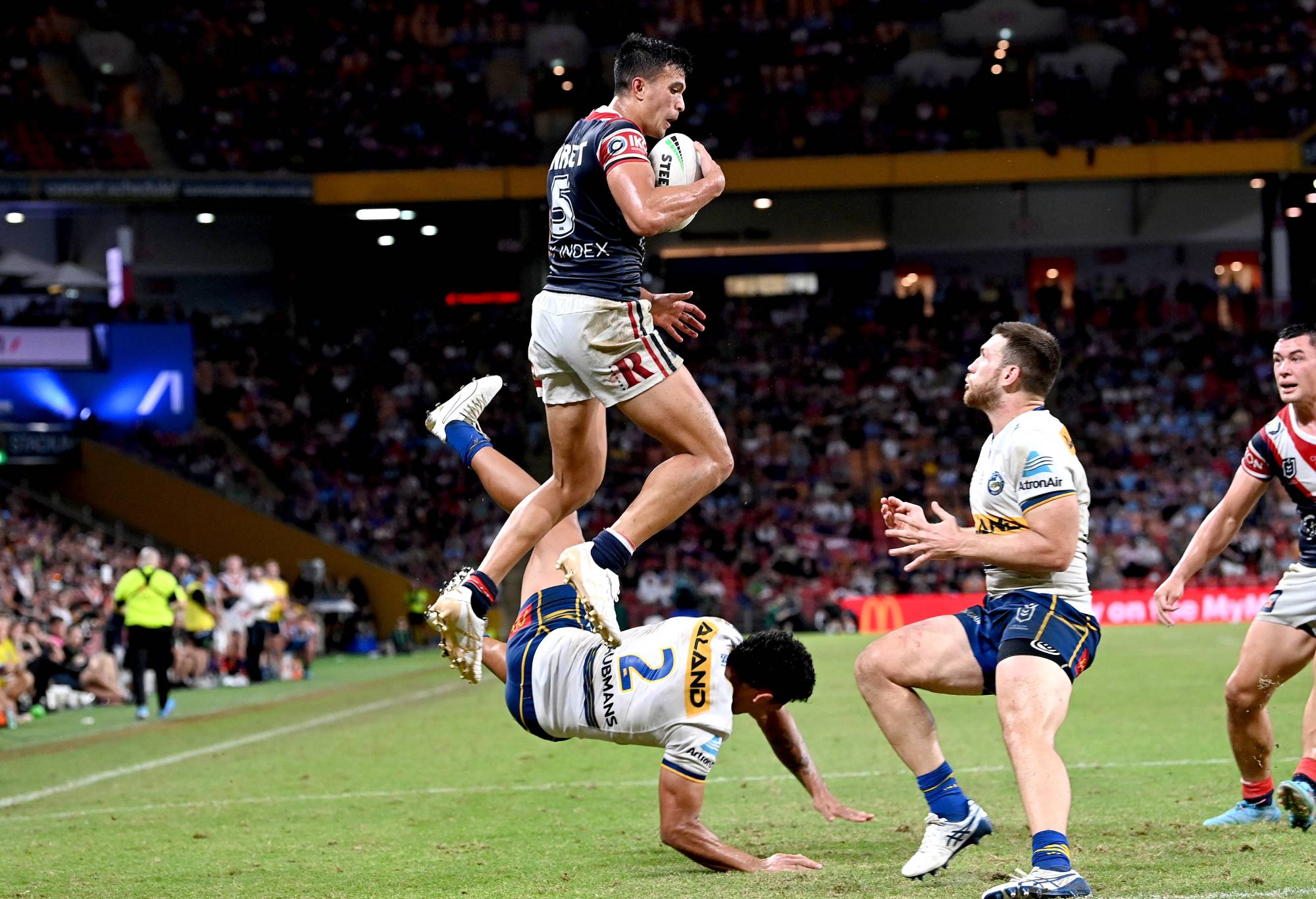
Joseph Suaalii. (Photo by Bradley Kanaris/Getty Images)
In rugby league, it was a lot easier to be a one-club player generations ago when it was a part-time occupation – they all had regular jobs and fitted in training a couple of nights a week and game day on the weekends.
Even the modern players who spend their career at one club only do so if they’re suitably rewarded. Raiders star Jack Wighton this week announced he would be testing the open market rather than automatically take whatever off the club offered.
That’s not being disloyal or greedy, it’s being smart. He’s 30, his long-term next contract will likely be his last so he needs to maximise his earning capacity.
Moses Suli copped flak during the week when he admitted “I didn’t want to go” when he joined St George Illawarra, which was misconstrued into him not wanting to be at the club.
What he actually meant was that he was happy at Manly and wasn’t looking forward to relocating from Sydney to Wollongong but when told by his agent that the club wouldn’t stand in his way if he took up the better offer elsewhere, he did just that and has been one of the few form players at the Dragons over the past 12 months.
Depending on who you listen to, the era prior to full-time professionalism is painted as a time when loyalty to your club was paramount and players rarely switched.
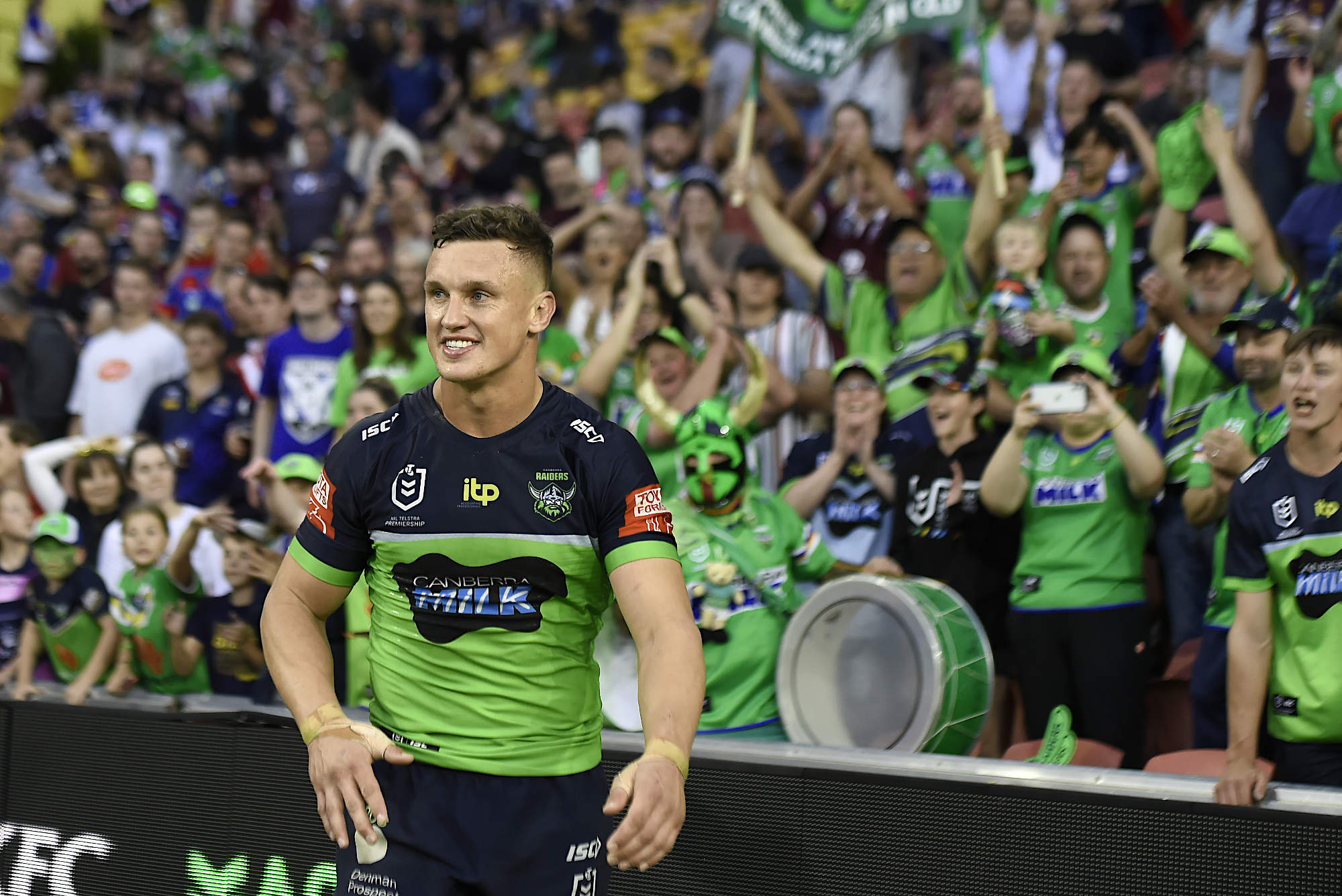
(Photo by Albert Perez/Getty Images)
Gould himself is a prime example of a player who did what was best for his career rather than slavishly staying put – he kicked off his career at Penrith in 1976, joined Newtown five years later for two seasons, was at Canterbury from 1983-85 before finishing his career with a swansong at South Sydney. He then coached at the Panthers and the Roosters before holding executive positions at Penrith, the Warriors and now the Bulldogs.
To quote Jerry Seinfeld, not that there’s anything wrong with that. If you had the choice, would you play 100-plus first-grade games at a range of clubs or less if you stayed loyal to your original team but it wasn’t your best chance of playing in the NRL, let alone where you’d get the most money?
For the modern player, it’s more of a cut-throat environment where clubs will shop you around to rival teams behind your back and then deny it if the story gets leaked.
In many cases, the money a player earns during their career will be comparatively more than their annual salary after hanging up the boots and if invested wisely, their NRL contracts can set them up for life.
That career window is shrinking with the average age of NRL players coming down in the six-again era over the past few years and 30-something veterans becoming thin on the ground.
While the number of roster spots in the NRL senior squads grew this year to 510 with the addition of the Dolphins, it’s still a long shot for any talented teenager to graduate from the junior representative ranks to the big league.
Players have every right to explore their options and take the best option whether it’s at the same club, a rival team or a different sport altogether – it would be foolish to do otherwise.